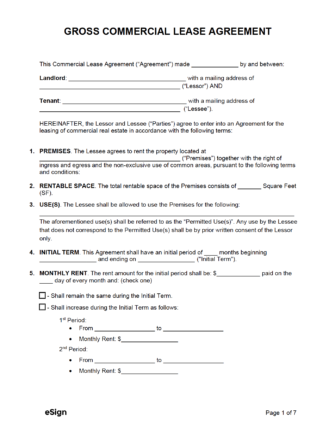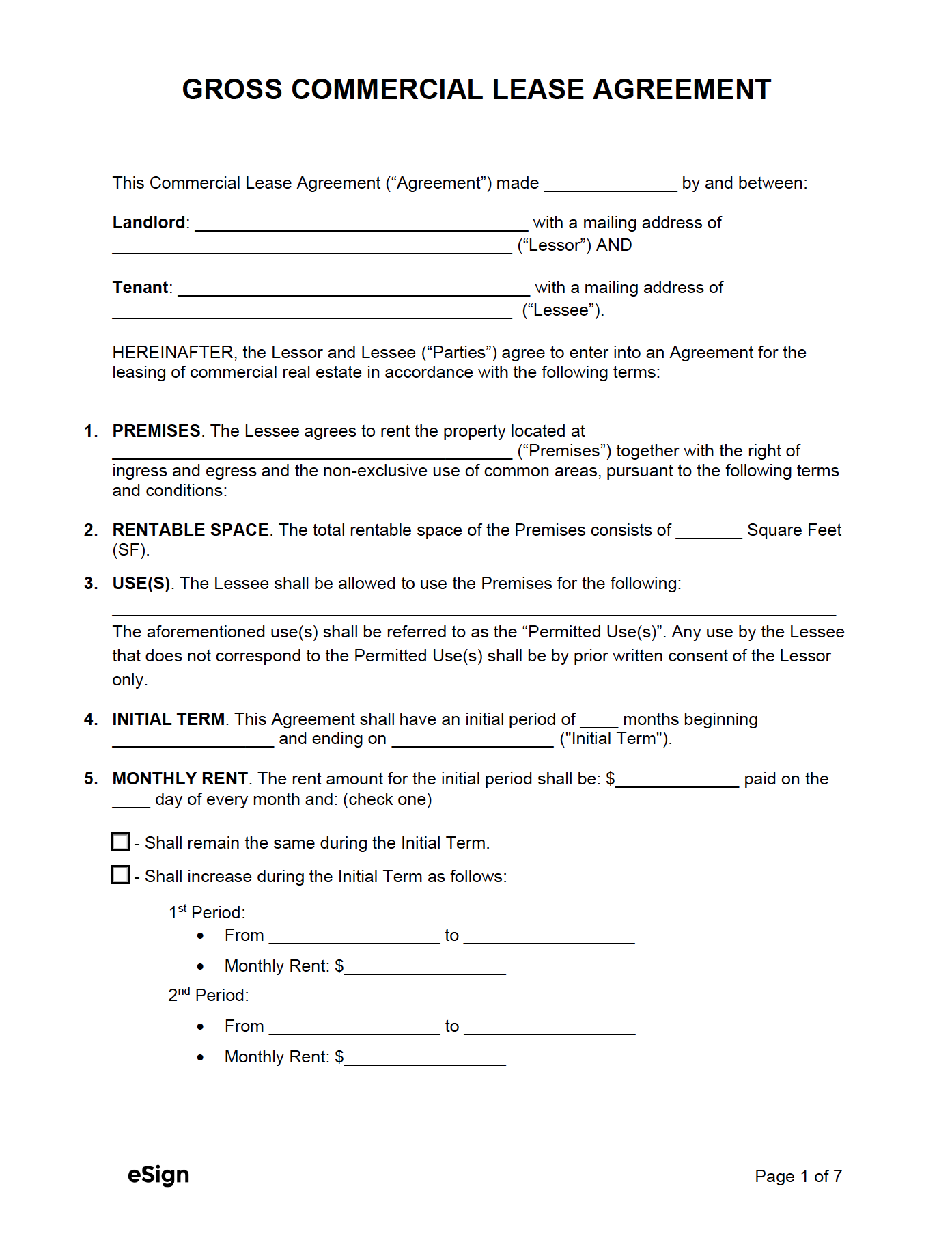A gross commercial lease agreement can also be referred to as a:
- Gross Rent Lease.
- Full Service Lease.
Overview of Gross Leases
What is a gross lease?
A gross lease is a rental agreement where the landlord covers all property costs. A gross lease simplifies a tenant’s obligations, giving them certainty on how much they’ll pay every rental term. Other costs that are typically paid by the tenant, such as utilities, insurance, and repair costs, are assigned to the landlord.
While this lease type may seem undesirable for landlords, it allows them to charge a higher base rent that covers the property’s operating expenses.
When to use a gross lease?
Gross leases are typically used for self-storage units, retail spaces, and offices. This lease type is common in commercial rentals and provides the simplest arrangement for the tenant.

